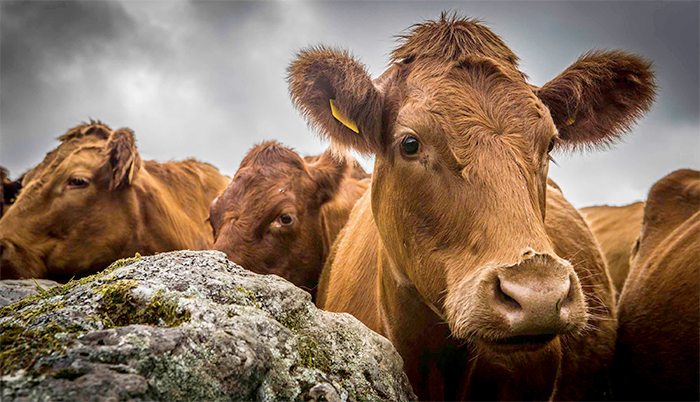
Scientists have created the first genetically engineered cattle which they say are resistant to tuberculosis, thereby reducing the need to cull infected herds.
Bovine tuberculosis is a chronic infectious disease that affects cattle. Environment Secretary Liz Truss said the disease was the greatest threat to the UK beef and dairy industry.
The researchers, from China, developed a technique to insert a mouth gene known as SP110 into the genome of Holstein-Freisian cattle.
UK cattle farmers were warned to take a firmer control of diseases if they were to 'remain competitive and secure future markets', the Cattle Health Certification Standards (CHeCS) said.
Producers could see 'reduced marketing and export opportunities within a few years' due to the UK being seen as the dirty man of cattle disease control within Europe and abroad.
CHeCS executive director Tim Brigstocke said: "The industry must come together and work on reducing endemic infection in UK dairy and beef herds if we want to be competitive and project a positive image, both here for our domestic market and when selling overseas. Other countries have simply overtaken us and this will soon start to affect our markets. For example, disease-free countries only want to import from other disease-free countries; the UK simply cannot claim to be that."
The scientists said tests showed the bacterium to be at a 'lower rate' among the genetically engineered cattle.
"All these results demonstrate that inserting SP110 into cattle is a highly promising technique for creating resistance to M. bovis infection and that this genome modification for tuberculosis resistance in cattle is heritable," they said.
Prof Bruce Whitelaw, professor of animal biotechnology at the Roslin Institute, University of Edinburgh, said: "The world faces unprecedented population growth on the backdrop of competing pressure on agricultural land and resources. Food security for all is an international imperative.
"Society needs to embrace many strategies to address this global challenge - both traditional and new - with many seeing genetic engineering as contributing to the much needed solutions.
"These authors describe genetically engineered cattle with reduced disease severity upon pathogen challenge both in the lab and, importantly, in the engineered animals themselves," he said.
